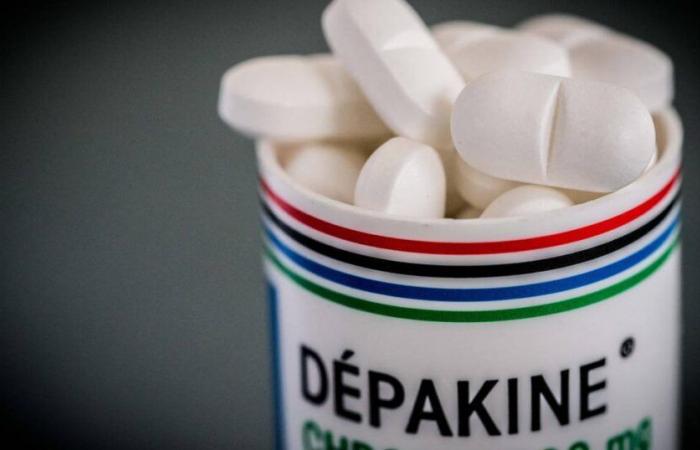From this Monday, January 6, it will be more difficult to be prescribed and delivered these pills, especially for future fathers. Prohibited in pregnant women, medications based on valproate are dangerous for the formation of the fetus.
Too risky to be distributed all over the place. France is once again tightening the prescription and delivery of drugs indicated for epilepsy, in particular those containing valproate, such as the famous Dépakine, the cause of health scandals. From this Monday, January 6, only neurologists, psychiatrists and pediatricians will be able to initiate valproate treatments – only renewal can be prescribed by any doctor. Patients already under treatment will need to make an appointment by June 30 with their specialist. A certificate of shared information, particularly on the risks involved, must also be co-signed each year by the patient and the prescriber and presented to the pharmacy, in addition to the prescription, to obtain the medication.
These changes concern all medicines based on valproate and derivatives. Apart from Dépakine, Micropakine, Dépakote, Dépamide, Divalcote and their generics are targeted. Treatments including carbamazepine (Tegretol and generics) and topiramate (Epitomax and generics) are subject to the same restrictions. These medications, used to prevent epileptic seizures, are sometimes also prescribed for certain mood and psychiatric disorders, certain migraines, and certain neuropathic pain. With these changes “complementary to previous actions”, “the objective is to limit the exposure of unborn children to these drugs taking into account their risks”, summed up the medical director of the medicines agency (ANSM), Dr Philippe Vella, when announcing these restrictions last December.
Danger for future fathers
Valproate, with well-known dangers for pregnant women (it has been banned since 2018), would pose a risk for adolescents and men. The European Medicines Agency (EMA) announced in 2023 a study carried out on the health database of numerous patients in several Scandinavian countries and concluding on a “moderate” risk of developmental disorders, such as autism. , in children of fathers treated with valproate, the molecule also acts on sperm quality (it varies between 5.6 and 6.3%). As a reminder, in the event of maternal exposure, this risk of disorder is around 30 to 40%. And can be the cause of physical malformations.
Chronicle “Take care”
“There was no new data, but given the risk and increased information requested by the European Union, we considered it necessary to complete the system,” justified Philippe Vella. The French agency “goes further than recommended by the EU and has taken the time necessary for discussions with caregivers, patient associations and laboratories to find a balance between the needs and aspirations of all”, he added. Around 160,000 men aged 15 to 69 are treated in France with valproate, according to the ANSM.
‘Use should be avoided’
For carbamazepine, the information shared with women likely to have children or who are pregnant will be reinforced, via a certificate similar to that for valproate. If “the risks of malformations and neurodevelopmental disorders linked to maternal exposure to this drug have been known for a long time”, noted Philippe Vella, “there are still too many exposed pregnancies while there are situations where use should be avoided”. Around 20,000 women of childbearing age are treated in the country with this molecule. The ANSM has also asked manufacturers of drugs based on valproate and carbamazepine to put temporary messages on the boxes to warn of new prescribing methods in 2025 and to invite patients to consult.
When it comes to topiramate medications, the change is a little different. For women suffering from migraine, competent “pain” doctors will be able, in addition to neurologists, to prescribe this treatment from January 6. Furthermore, a certificate of shared information will also become necessary to obtain topiramate.
Legal proceedings
These announcements come in a context where the French medical agency has for several years been tightening its policy towards these anti-epileptics considered to be at risk during pregnancy. In particular Dépakine, which, in France, is at the heart of numerous legal proceedings, still ongoing but having already given rise to several decisions unfavorable to the manufacturer, Sanofi.
But in some patients, only these treatments prove effective. It is therefore up to doctors to assess whether the risks of seizures and other disorders are high enough to compensate for those of the treatment. “For patients treated with carbamazepine, if a pregnancy begins, you should consult your doctor,” insisted Philippe Vella. And to warn: “But you should not stop your treatment alone and suddenly: this can have serious consequences, such as an increase in epileptic seizures”.






